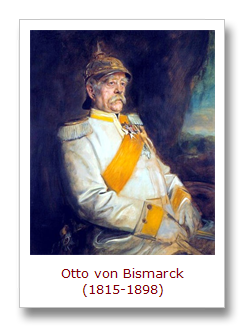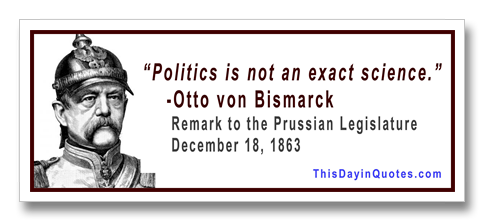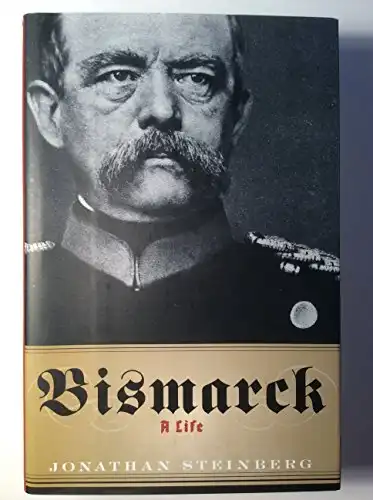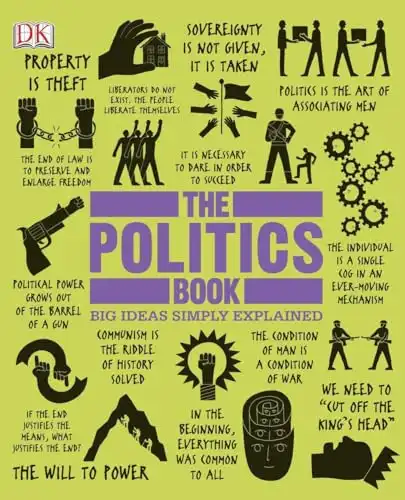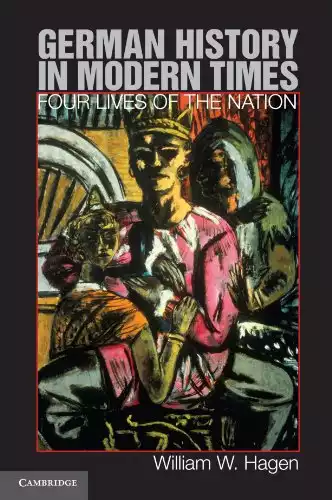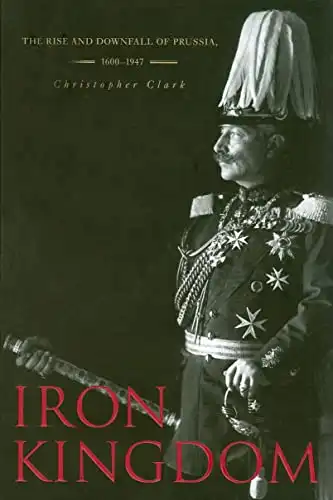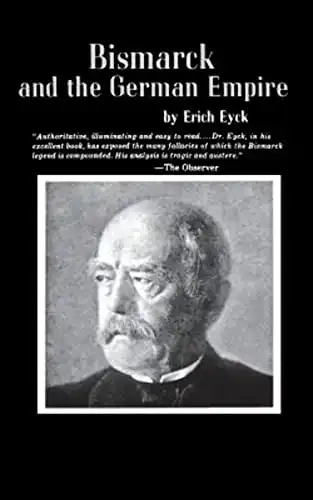On this date in 1863, the Prussian statesman Otto von Bismark made a famous remark about politics to members of the Prussian parliament.
“Politics is not an exact science,” he said, on December 18, 1863.
At the time, Bismark was serving as right hand man and Minister-President for Prussian King William I, who faced occasional challenges to his policies from Prussian legislators.
When legislators balked at the King’s proposal for more military spending in December 1863, Bismark told them:
“An assembly of three hundred and fifty members cannot, nowadays, in the last resort, direct the policy of a great power…Politics is not an exact science…I am not afraid of democracy; if I were, I should give up the game. If the House refuses to vote supplies, we must take them where we can find them.”
The Prussian legislators were not convinced.
They refused to approve the King’s military funding proposal.
So, Bismark — a tough “statesman” known for his belief that state policy should be carried out “through blood and iron” when needed — had the King dissolve the Prussian parliament.
Problem solved.
In 1867, as Bismark was overseeing the unification of Prussia and other formerly separate German states into the German Empire, he uttered an oft-quoted variation on his earlier remark when he said: “Politics is the art of the possible.”
Then, in 1884, in a speech to the German parliament as the Imperial Chancellor, Bismark made yet another famous comment about politics: “Politics is not a science…but an art.”
Most of us would probably agree that politics is not a science, especially not an exact one.
But I doubt if many people would call what happens in the U.S. Congress or their state legislatures an art — unless they’re talking about the Surrealism genre.
* * * * * * * * * *
Comments? Corrections? Post them on the Famous Quotations Facebook page.
Related reading…


